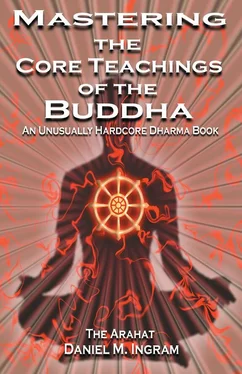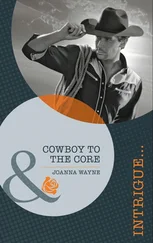Daniel Ingram - Mastering the Core Teachings of Buddha - An Unusually Hardcore Dharma Book
Здесь есть возможность читать онлайн «Daniel Ingram - Mastering the Core Teachings of Buddha - An Unusually Hardcore Dharma Book» весь текст электронной книги совершенно бесплатно (целиком полную версию без сокращений). В некоторых случаях можно слушать аудио, скачать через торрент в формате fb2 и присутствует краткое содержание. Год выпуска: 2009, ISBN: 2009, Издательство: Aeon Books, Жанр: Старинная литература, на русском языке. Описание произведения, (предисловие) а так же отзывы посетителей доступны на портале библиотеки ЛибКат.
- Название:Mastering the Core Teachings of Buddha - An Unusually Hardcore Dharma Book
- Автор:
- Издательство:Aeon Books
- Жанр:
- Год:2009
- ISBN:9781904658405
- Рейтинг книги:5 / 5. Голосов: 1
-
Избранное:Добавить в избранное
- Отзывы:
-
Ваша оценка:
- 100
- 1
- 2
- 3
- 4
- 5
Mastering the Core Teachings of Buddha - An Unusually Hardcore Dharma Book: краткое содержание, описание и аннотация
Предлагаем к чтению аннотацию, описание, краткое содержание или предисловие (зависит от того, что написал сам автор книги «Mastering the Core Teachings of Buddha - An Unusually Hardcore Dharma Book»). Если вы не нашли необходимую информацию о книге — напишите в комментариях, мы постараемся отыскать её.
Mastering the Core Teachings of Buddha - An Unusually Hardcore Dharma Book — читать онлайн бесплатно полную книгу (весь текст) целиком
Ниже представлен текст книги, разбитый по страницам. Система сохранения места последней прочитанной страницы, позволяет с удобством читать онлайн бесплатно книгу «Mastering the Core Teachings of Buddha - An Unusually Hardcore Dharma Book», без необходимости каждый раз заново искать на чём Вы остановились. Поставьте закладку, и сможете в любой момент перейти на страницу, на которой закончили чтение.
Интервал:
Закладка:
Thus, even for pure concentration practice, what you are concentrating on, i.e. content, matters. Thus, the idea that content is everything is reinforced.
However, when it comes to insight practice, content will get you nowhere fast. In insight practice, everything the student has learned 106
What Went Wrong?
about being lost in the names of things and thoughts about them, i.e.
content, will be completely useless and an impediment. Here the inquiry must turn to impermanence, suffering and no-self. These characteristics must be understood clearly and directly in whatever sensations arise, be they beautiful, ugly, helpful, not helpful, skillful, not skillful, holy, profane, dull, or otherwise. Anything other than this is just not insight practice, never was and never will be.
It doesn’t matter what the quality of your mind is, or what the sensations of your body are, if you directly understand the momentary sensations that make these up to be impermanent, unsatisfactory and not self, then you are on the right path, the path of liberating insight.
However, as mentioned before, off the cushion the quality of your mind, your reactions, your words and deeds all matter. These are not in conflict. Insight practice is about ultimate reality, the ultimate nature of reality, and thus the specifics don’t matter. Morality and concentration are about relative reality, and thus the specifics are everything. Learning to be a master of both the ultimate and the relative is what this is all about.
Another reason that people don’t make progress is that they may be being taught by people who have no or little insight, and so are taught by those who are themselves fascinated by content and unskilled in going beyond this into insight practices. The scary truth is that there are far more people teaching insight meditation that don’t know what insight is than those that do, though this tends to be less true in big, established retreat centers. Thus, even if the students learn what they are taught, if those who do not know are teaching them, then what they learn is unlikely to be correct or helpful. While the teacher may have learned to parrot the language of ultimate reality, this is absolutely no substitute for direct knowledge of it. In the tradition I come from, they consider the second stage of enlightenment (Second Path, see Part III) to generally be the minimum level of understanding for a teacher. This is a very reasonable standard.
Another possible reason that people get lost and don’t follow the clear and basic instructions of insight practices is that they just can’t believe that doing something as completely simple as looking into the impermanence, unsatisfactoriness, and emptiness of the mundane 107
What Went Wrong?
sensations that make up their ordinary world could produce awakening.
It just sounds ridiculous to them, and thus they imagine that there are secret teachings somewhere that are the real way to enlightenment.
Thus, they may not try at all, may practice in their “own way,” or may keep trying to read more into the teachings than is there and come up with their own special nonsense. These unhelpful ways of speculating can become very engaging, but they won’t produce insight. These speculations can also lead to people trying to do very advanced practices that were originally designed for meditators that had already mastered concentration and insight practices to a pronounced degree (such as intensive Tantric retreats), and thus not deriving the full benefit from them or running into other problems.
How do I know that solely content-based practice won’t produce insight? Because there are only Three Doors to ultimate reality, that’s why, and they are utterly unrelated to content, though they can be found in all content if the content aspect is ignored. (Actually, there is sort of a fourth door that is accessible to very realized beings, see the Appendix.)
“Only Three Doors? But there are thousands of practices, many traditions! How can you say there are only Three Doors?”
There are only Three Doors, that’s how. I don’t care what tradition you subscribe to, what practice you do, or who you are, there are only three basic ways to enter into the attainment of ultimate reality, emptiness, Nirvana, or whatever you want to call it. These doors relate directly to profound and direct understandings of the Three
Characteristics of impermanence, suffering and no-self, and you have to understand the heck out of these to enter into the ranks of the Noble Ones.
“But there are many valid traditions that do not talk about the Three Characteristics!” It may appear so, but if the tradition is a valid tradition you will find these teachings in there somehow, in some other language or formulation, as these are the only way. You will find them in the works of Rumi, Kabir and Krishnamurti. You will find them in the Bible and Koran. You will find them in the writings of St. John of the Cross and many other Christian mystics. You will find them in all of the branches of Buddhism. You will find them in the Upanishads. You will find them in the writings of Carlos Castaneda. You will find them 108
What Went Wrong?
wherever you find a true spiritual path, and that is just all there is to it. It can help to consider that to completely understand compassion is to understand suffering and vice versa, as these are really two sides of the same coin. Also, to understand True Self practices is the same as understanding no-self practices, as these are also two sides of the same coin.
“But we are tantric practitioners, and the Three Characteristics are merely a low-brow Hinayana teaching.” Tantra primarily cultivates the emptiness door, that of no-self, which is one of the Three
Characteristics. It can also be useful for transmuting energy into more skillful forms, a bit of which will be discussed later. However, those who consider themselves to be mahayanists or vajrayanaists should read the fine print. You will find that all Three Characteristics are there, and in fact that you are highly encouraged to master the “Hinayana” practices before moving on to the Mahayana or Vajrayana practices anyway. I strongly suggest checking out Lama Yeshe’s Introduction to Tantra.
Further, the Hinayana is often confused with the Theravada, and while there are similarities, the Theravada is much more extensive than the Tibetan division of the Hinayana and contains extensive teachings on compassion and emptiness as well as helping others, but this is a topic for another time.
In short, should you enter ultimate reality or emptiness, it will be through one of the Three Doors. This is just the way it is. It is not negotiable. The nature of the mind and reality are just the nature of the mind and reality. You cannot change this, but you can understand it.
“But we are Zen students. We realize Buddha Nature! We don’t need the Three Characteristics, as we sit zazen!” Read any good book on Zen, such as those by Dogen, Chi-nul, or the excellent Zen Mind, Beginner’s Mind, by Shunryu Suzuki. The Three Characteristics are in there in abundance, and those who think they can enter ultimate reality in some other way are fooling themselves. Paying direct attention to bare reality with clarity and precision will result in directly observing the Three Characteristics regardless of whether or not you wish to call them that, as they are absolutely the truth of all conditioned things in all times and in all beings.
109
What Went Wrong?
Thus, the practice, tradition, and all of that, i.e. content, are irrelevant in the end. However, you need them right up until the last moment, so don’t think that I am advocating not following a tradition. I am just advocating actually following the tradition correctly and thus clearly penetrating into the nature of your actual experience just as it is.
Читать дальшеИнтервал:
Закладка:
Похожие книги на «Mastering the Core Teachings of Buddha - An Unusually Hardcore Dharma Book»
Представляем Вашему вниманию похожие книги на «Mastering the Core Teachings of Buddha - An Unusually Hardcore Dharma Book» списком для выбора. Мы отобрали схожую по названию и смыслу литературу в надежде предоставить читателям больше вариантов отыскать новые, интересные, ещё непрочитанные произведения.
Обсуждение, отзывы о книге «Mastering the Core Teachings of Buddha - An Unusually Hardcore Dharma Book» и просто собственные мнения читателей. Оставьте ваши комментарии, напишите, что Вы думаете о произведении, его смысле или главных героях. Укажите что конкретно понравилось, а что нет, и почему Вы так считаете.












